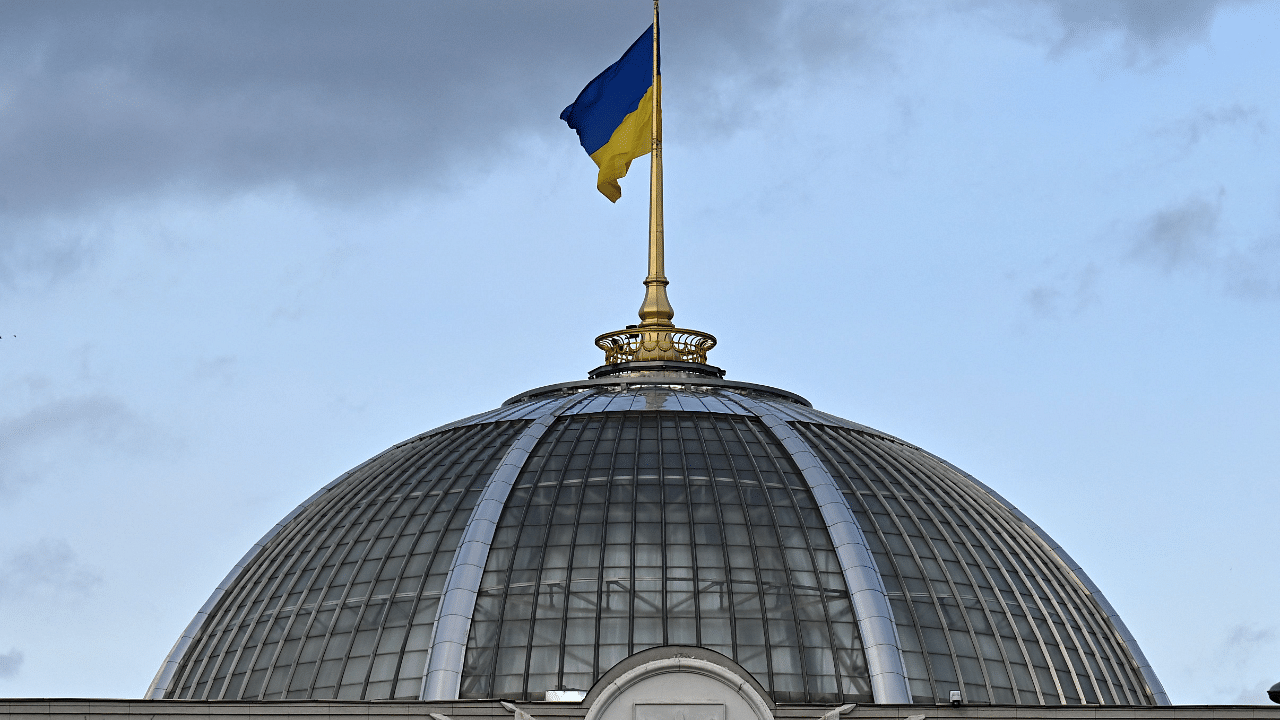
Ukraine's parliament imposed a national state of emergency on Wednesday aimed at helping to forge a response to the threat of a Russian invasion.
The measure was overwhelmingly approved on the same day that Moscow began to evacuate its Kyiv embassy and Washington stepped up its warnings about the chances of an all-out Russian attack.
"The situation is difficult but remains completely under our control," Ukraine's security and defence council secretary Oleksiy Danilov told lawmakers ahead of the vote.
The state of emergency allows Ukraine's regional governments to adopt heightened security measures that range from tighter ID and vehicle checks to more stringent policing.
They apply to all parts of Ukraine except for two Russian-backed eastern separatist regions where a deadly insurgency has killed more than 14,000 people in the past two years.
Russian President Vladimir Putin's recognition of the eastern provinces' independence on Monday sharply ramped up fears of an imminent war.
Putin has signed decrees allowing the deployment of Russian "peacekeeping" forces into rebel territories to back up the independence claims.
The Russian leader said on Tuesday that his decision to send in the troops will "depend on the situation on the ground".
But Russian state television has been filled with allegations from rebel leaders in the past few days accusing Ukrainian soldiers of launching deadly and unprovoked attacks against civilians.
Ukraine firmly denies the allegations.
The rapidly escalating tensions have forced US officials to ramp up their warning about the threat of an imminent attack from at least 150,000 Russian forces believed to have encircled Ukraine.
Watch the latest DH Videos here: